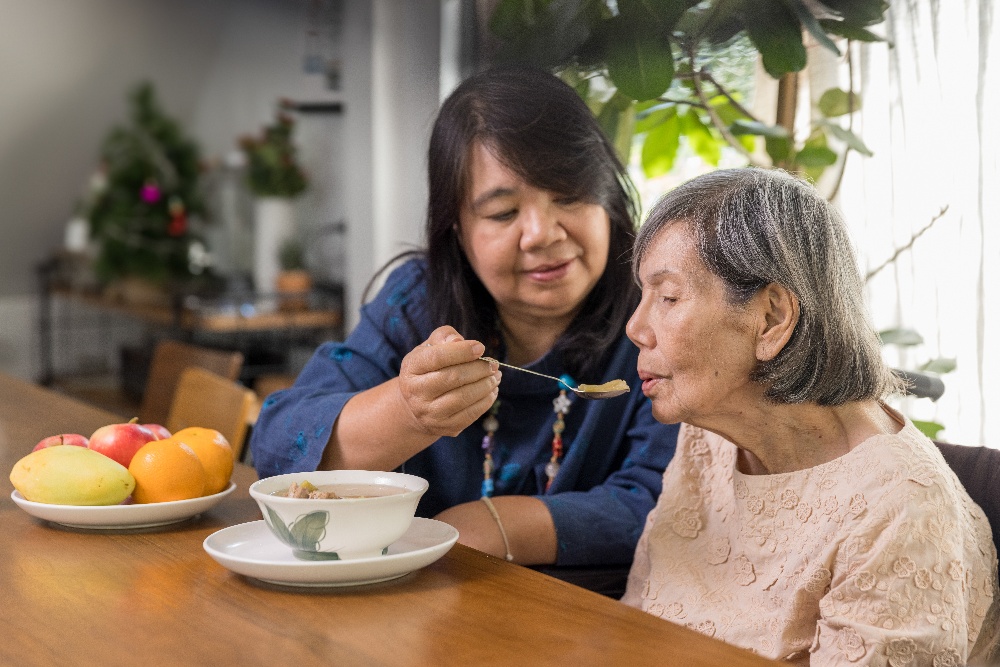
Chronic loneliness is increasingly getting the attention it deserves in health care discourse, but literature and conversations tend to be one-dimensional, focusing on seniors. The truth is that the oldest population isn’t the only one to struggle with loneliness. In fact, it touches all ages and demographics.
Still, there’s one group that’s easy to overlook: The caregivers who go above and beyond to make life better for their loved ones. When you look after someone you care about, you don’t just clock out at the end of the day — and that takes a toll. Learn what that experience looks like and how to solve caregiver loneliness.
The sad realities of caregiver loneliness
The demands caregivers face can be overwhelming, from administering treatments at home to providing companionship to coordinating medical care. Someone else’s needs are in the foreground at all times, causing caregivers to experience loneliness when they set aside their own routines, lifestyles and social activities in service of another.
And it’s less, “I wish I could be with you and the kids,” and more, “This is impacting my health.”
Research shows that 10% of family caregivers — usually children caring for older parents — often or always feel lonely. But it’s a domino effect, giving way to a full spectrum of health issues. As many as 40-70% of caregivers in the U.S. exhibit symptoms of depression. They’re also six times more likely to have anxiety and sleep disorders and twice as likely to experience general poor health.
Symptoms of caregiver loneliness
Loneliness impacts caregivers from all angles, whether it’s gaining a few pounds due to emotional eating or effects you can’t see quite as readily. There are a few telltale signs of deeper health effects.
Feeling disconnected
When the priority is caring for a parent or sibling, the outside world seems to be a mile away. Caregivers have little time or energy for other family or friends, taking them away from what’s personally fulfilling and even causing resentment toward caretaking duties.
They might even experience disproportionate feelings of guilt or responsibility as the only ones who can step up and help.
Inability to focus
Caring for someone else is usually its own full-time job, so it’s tough for caregivers to engage in work or other things outside of their care responsibilities. The problem? This can open Pandora’s box, exacerbating feelings of loneliness and worthlessness among caregivers and stifling their immune health. That’s because loneliness contributes to weakened immune cells, whereas a sense of purpose is linked to healthier immune cells.
Elevated blood pressure
Imagine the stress you feel when your own life is in disarray. What if you worried about a loved one just as much? Stress is a recipe for skyrocketing blood pressure, increasing caregivers’ risks of stroke, dementia, heart disease, diabetes and even death.
How caregivers can better cope with loneliness
It might seem easy to simply shrug and accept the hand that’s been dealt, but caregivers have options to mitigate the loneliness that comes with care responsibilities. The common theme? Self care.
Seek out respite care
There has to be a little give and take to avoid burnout. Taking advantage of respite care ensures caregivers answer their own needs without neglecting the care recipient. It might mean getting in touch with home care agencies and local programs or even asking for occasional help from friends and family to lift the weight of caregiving.
Reconnect with personal interests
Caregivers are people too! Although it might take extra effort, it’s important (and healthy!) to carve out time for what brings joy. Sports, hobbies, interest groups — it makes a difference to participate in outside activities that make them feel like themselves and allow them to engage with other people.
Join a support group
No one can do it alone. Caregivers carry an immense weight, but who’s looking after them? Online or local support groups provide emotional support, offering a venue to openly discuss similar situations with others and foster a sense of community and belonging.
Talk to a therapist
If stressed turns into depressed, a professional can help. That means trusting a qualified therapist for specialized support in managing the caregiver role — including coping with mental health symptoms like anxiety or depression.
Solve caregiver loneliness with Pyx Health
The most focused, compassionate caregivers may be struggling on the inside. Looking after a loved one is a heavy lift that can easily cause loneliness and isolation, and it’s not always simple to recognize or cope with. But by taking a few simple self-care measures, caregivers can ensure their own continued wellness.
Pyx Health is also here to help. Our compassionate support staff — known as ANDYs — offer a much-needed sounding board and information about local community resources while our engaging app provides evidence-based activities and screenings to help caregivers maintain wellness. Take a peek at our Medicare brief for more information on how Pyx Health uses science to solve loneliness.


